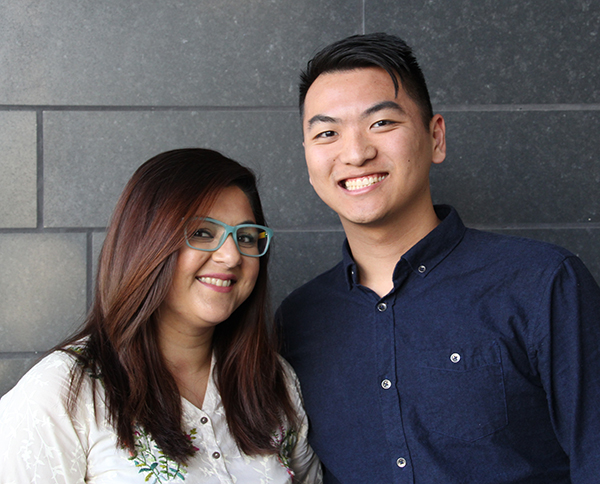
Anson Tam is an aspiring doctor from Honolulu, who brings a hardworking, sun loving, laid back Hawaiian attitude to swimming, research and surgery.
Tam was initially inspired to become a doctor by the primary care physicians in his hometown. Through the years, he saw many of them working hard to care for their patients, despite their limited resources. This inspired him to think about contributing to the field and becoming a doctor himself.
With this dream in mind, he worked hard in school, excelling in both the classroom and in the swimming pool. He won several school and state championships. His passion for the pool and his dream of getting into medical school landed him a full scholarship at the University of Missouri at St. Louis. However, he soon realized that the culture shock and the extreme cold weather were too much for him to bear. He missed the temperate weather and the diversity of Honolulu.
“One of my classmates had remarked one day how there were too many Asians in class this semester. I looked around to see only three other people who looked like me. It was a far cry from the mélange of faces and cultures that I was used to seeing back home,” he remarked.
Giving up a full scholarship was one of the hardest decisions that Tam had to make. Confused and uncertain about the future, Tam felt lost. It was his brother, who had been studying at USC at the time, who convinced him to transfer and become a Trojan.
In California, Tam soon realized that coming from Hawaii, there had not been many opportunities for him to experience the complexities of patient care dynamics. He volunteered at a local hospital and started participating in internships to improve his skill set and prep himself for medical school.
While earning his undergraduate degree in biological sciences, Tam decided to pursue a progressive master’s degree in stem cell biology and regenerative medicine from USC.
“Stem cells are a fascinating new technology, and I love the idea of regenerating new organs,” he said. “Finding viable organs for people for transplants has been a big issue for the transplantation field. The fact that we are finally at a stage where we can start a discussion for the generation of organs through stem cells is amazing.”
Tam understands that being a doctor is hard work, but believes that his Hawaiian roots will help him progress through the tough trials of medical school.
“I keep remembering the doctors back home,” he said, “how they dealt with so much, with so little. Doctors in Hawaii are so laid back and relaxed most of the time. But in intense situations, knowing full well that their decisions directly impact people’s lives, they roll up their sleeves and get the job done with smiles on their faces. I know that’s the kind of doctor I want to be!”
The author of this article, Muniza Junaid, also graduated from the master’s program in stem cell biology and regenerative medicine at the Keck School of Medicine of USC.
